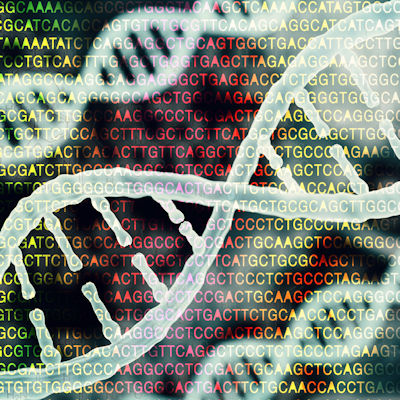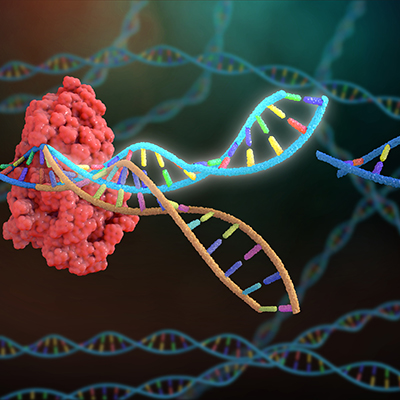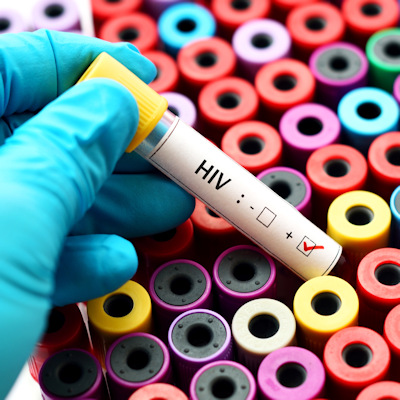 Deep sequencing captures genetic variants for vascular anomalies
Deep sequencing captures genetic variants for vascular anomalies
Children’s Hospital of Philadelphia (CHOP) researchers found that deep sequencing of the genome in the tissue samples and cell-free DNA of patients with potentially life-threatening vascular anomalies revealed genetic variants previously not captured by conventional genetic sequencing methods. The research, published Thursday in the journal Nature Medicine, led to improvements in over 60% of the patients placed on targeted therapies related to these newly found genetic variants. Read More
 Single-cell RNA sequencing data reveals T cells linked to cancer immunotherapy resistance
Single-cell RNA sequencing data reveals T cells linked to cancer immunotherapy resistance
Single-cell RNA sequencing data has revealed an immune signature associated with non-responses to checkpoint inhibitors that may be a driver of resistance to immunotherapy. Read More
 Gene editing tool may reduce antimicrobial resistance spread
Gene editing tool may reduce antimicrobial resistance spread
A tool that could help reduce the spread of antimicrobial resistance shows early promise. In an article published Thursday in Microbiology, researchers describe the use of CRISPR technology to eliminate resistance in a wide range of bacteria. Read More
 Illumina CEO remains on the board, chairman is voted out
Illumina CEO remains on the board, chairman is voted out
Illumina shares traded on the Nasdaq rose more than 2% Friday morning to $197.63, a day after the firm's shareholders voted out Chairman John Thompson. Read More
 Study of woman who cannot feel pain finds molecular explanation for phenomenon
Study of woman who cannot feel pain finds molecular explanation for phenomenon
Researchers have uncovered the biological effects of a mutation that causes its carrier to live virtually pain-free, heal more rapidly, and experience reduced anxiety and fear. Read More
 DNA Script announces broad launch of DNA printing platform
DNA Script announces broad launch of DNA printing platform
DNA Script on Monday announced the broad commercial availability of the fully automated Syntax DNA printing platform, saying that it consists of the benchtop STX-200 system, advances in biochemistry, robust reagent kits, and intuitive software enhancements. Read More
 Strategic self-limiting production of infectious HIV particles by CRISPR
Strategic self-limiting production of infectious HIV particles by CRISPR
Temple University researchers found that genetic alterations that give rise to a rare congenital disorder known as MOGS-CDG paradoxically also prevent HIV infection from spreading in permissive cells -- i.e., cells that support viral replication. The new approach, described Friday in Molecular Therapy – Nucleic Acids, harnesses this unusual protective ability in a novel gene-editing strategy aimed at eliminating HIV-1 infection without adversely effecting cell mortality. Read More
 FDA approves first topical gene therapy for treatment of wounds in patients with dystrophic epidermolysis bullosa
FDA approves first topical gene therapy for treatment of wounds in patients with dystrophic epidermolysis bullosa
The U.S. Food and Drug Administration (FDA) said on Friday it has approved Vyjuvek, a herpes-simplex virus type 1 (HSV-1) vector-based gene therapy, for the treatment of wounds in patients six months of age and older with dystrophic epidermolysis bullosa (DEB) and with mutations in the collagen type VII alpha 1 chain (COL7A1) gene. Read More
 Revvity, AstraZeneca ink license agreement for next-gen base editing tech
Revvity, AstraZeneca ink license agreement for next-gen base editing tech
Revvity this week announced a nonexclusive license agreement with AstraZeneca for the technology underlying a next-generation modular gene editing platform. Read More
 Alzheimer’s disease and modifiable risk factors: Genetic associations revealed
Alzheimer’s disease and modifiable risk factors: Genetic associations revealed
A genetic association study comparing participants with Alzheimer’s disease and control participants without Alzheimer’s disease found novel genetic associations between high high-density lipoprotein (HDL) cholesterol concentrations and high systolic blood pressure and a higher risk of Alzheimer’s disease. Read More
Conferences
Science Briefs
Member Rewards
Earn points for contributing to market research. Redeem your points for merchandise, travel, or even to help your favorite charity.
Research Topics
Interact with an engaged, global community of your peers who come together to discuss their work and opportunities.
Connect
Tweets by @ScienceBoard






